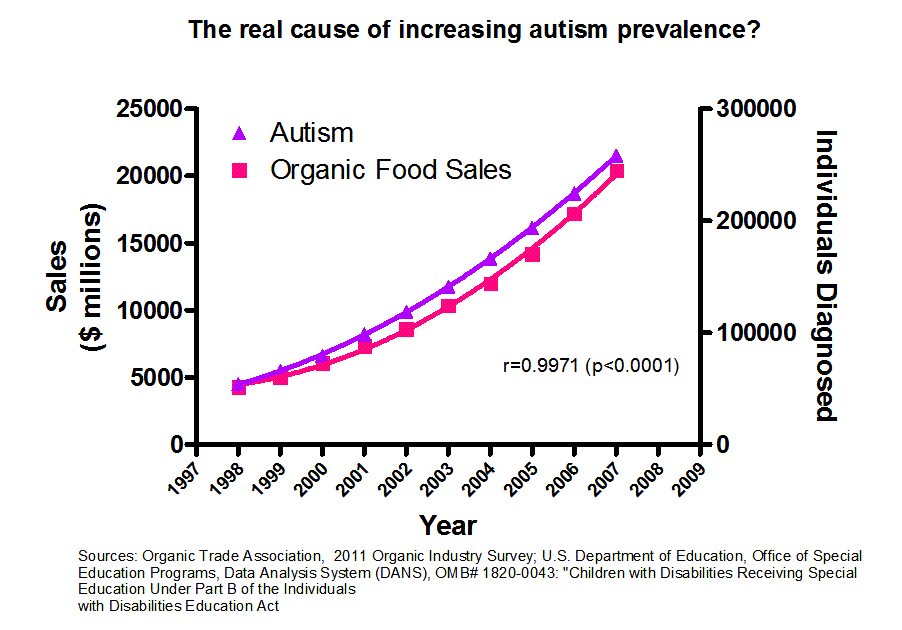This is the kind of headline that people, particularly parents of children on the spectrum, encounter all the time. I read these articles, and I will tell you from a background in statistics and psychology that the vast majority of them, like the headline above, are really overblown and premature. Some of them, particularly those found on blogs, are downright false. But if you didn't have a deep background in research, experimental design, or statistical analysis, you'd never know it. Even in the most educated of people, such a background is rare, because few fields require it.
Thankfully I have a background in a field that does, psychology, and I want to help share the ability to evaluate scientific claims it's given me. Every time one of these major headlines comes out, I'm going to post it here. I'll teach you what to look for within the article, the red flags of insufficient evidence or something just plain made up, and the signs of a well made study. (I guarantee you, we will have much fewer opportunities to do the latter than the former.)
And I extend the same offer to you. Every time one of you encounters an article, or even a blog post, which makes claims about science and autism and you have questions about, I want you to send them to me. And I'll post it here on the ASE page and break it down for you all, teaching you what to look for as I do. This is your chance to get a free resource (me) to analyze areas of concern for you, instead of having to sort through them yourself, and simply guess.
After doing several of these, I'll start challenging you all to tell me what you see and verifying (or correcting) your analysis. And after a short while, I'm quite confident that any of you who choose to participate will be able to assess most any claim thrown at you...and even then, if you run across one you have concerns about, feel free to send it to me and we'll run through it together.
A parent once told me that sorting through all the news information he saw about autism was 'like trying to drink water out of a fire hose.' I get it, really I do. And while I can't turn down the sheer quantity in the media, I can help you quickly and easily understand and analyze it. The question is, do you want to learn?
Like = I'm interested!
-Creigh
Note: This seems like a really good time to remind you all that I am not a professional. I've taken many statistics and research methods courses, and am just seeking to highlight some of the basic principles for you guys, not for the goal of giving advice or swaying opinions or even judging interventions, but for the goal of helping increase scientific literacy in a population that runs into the need for it frequently.
[Picture reads: The real cause of increasing autism prevalence? Below is a graph showing a near 1 for 1 increase in autism rates as organic food consumption increases. How could this be? And does it really mean that organic food causes autism? Well, that's something we're going to cover together.]

 RSS Feed
RSS Feed
